
Seizing the Urban Opportunity
How national governments can recover from COVID-19, secure shared prosperity, and tackle the climate crisis through cities.
How national governments can recover from COVID-19, tackle the climate crisis and secure shared prosperity through cities.
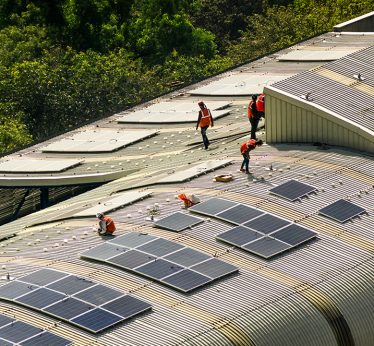
Seizing the Urban Opportunity focuses on emerging economies as they face particularly complex challenges which have been exacerbated by the pandemic. The six key countries produce about a third of global GDP and 41% of CO2 emissions from fossil fuel use and make up 42% of the world’s urban population. Consequently, the extent to which these six emerging economies can spur cities to catalyse sustainable, inclusive and resilient growth is crucial not only for their future, but for the entire world as well.
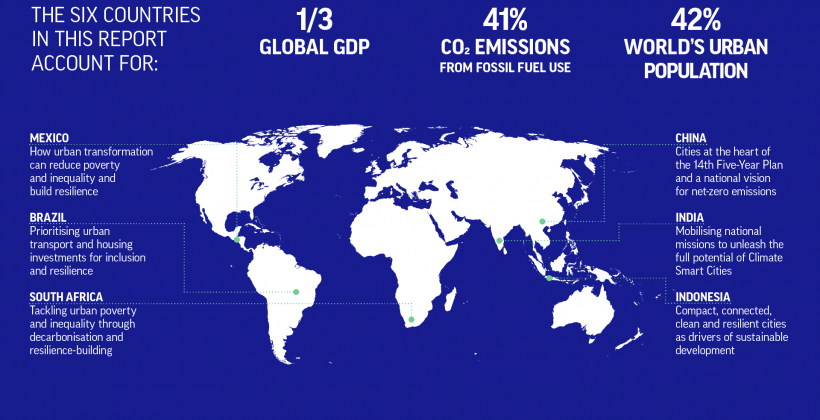
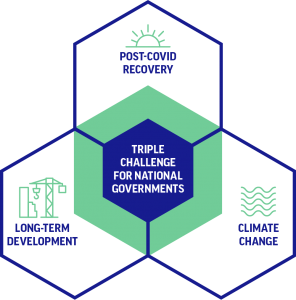
COVID-19 has exposed our economies and communities to a wide range of challenges, with cities and the urban poor particularly hard-hit. Unemployment has soared and up to 150 million people are expected to fall into extreme poverty due to the pandemic. The urban poor are living in overcrowded conditions without access to adequate services, social safety nets, or transport. At the same time, cities are continuing to experience heatwaves, floods and landslides as climate hazards rapidly escalate.
Cities are vital to solving the triple challenges of COVID-19 recovery, sustainable and inclusive development, and climate change; but, given their central role to countries’ vitality, they need national leadership and support to realise their potential. Cities contain 56% of the world’s populace and are: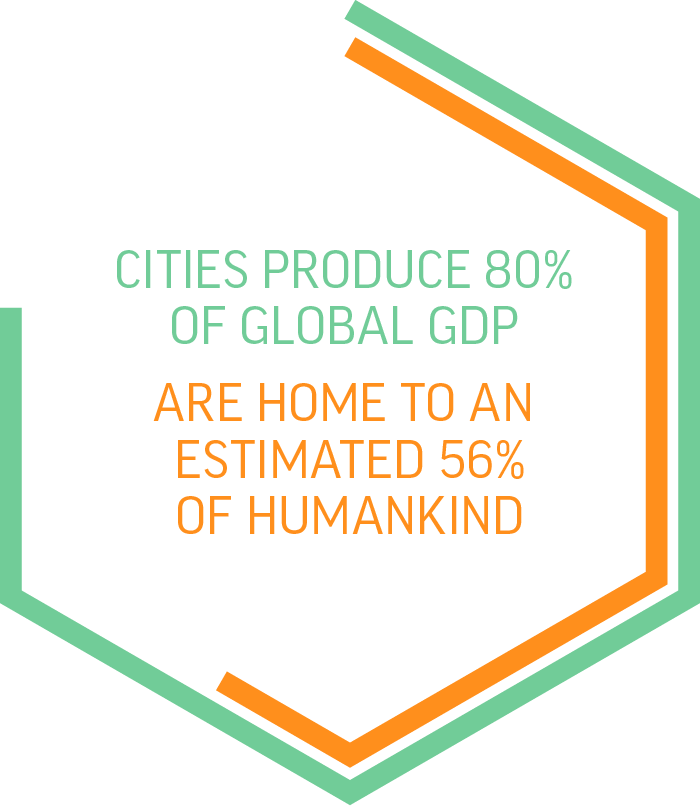
The run-up to COP26 in Glasgow is a pivotal time for national governments, as the choices they make amid the COVID crisis can put their countries on track for a more prosperous and resilient future, or accelerate the climate emergency. By 2030 trillions of dollars will be invested in urban infrastructure, which must be directed towards zero-carbon and resilient development; nearly a billion people will be added to the global urban population, requiring low-carbon, resilient and inclusive places to live; and nearly half of CO2 emissions must be reduced, with cities potentially delivering 58% of the energy-related emission reductions needed to keep the global temperature increase well below 2°C.
National governments can create shared prosperity by making cities low-carbon, resilient and inclusive. This can be done by adopting technically feasible, currently available low-carbon measures to cut emissions from buildings, transport, materials use and waste. Across these six countries, implementation of these measures could cut annual emissions from key urban sectors by 87–96% by 2050 beyond initial NDC commitments under the Paris Agreement. Nation governments can also encourage the development of climate-resilient infrastructure and urban development, adopting new technologies and practices to reduce climate risks and addressing the socio-economic drivers of vulnerability. They can also introduce measures to support marginalised communities, making cities even stronger and more inclusive, with particular benefits for the most vulnerable populations.
Our previous report in this workstream, Climate Emergency, Urban Opportunity, found that national governments hold the key to urban transformations, as they drive or control key policy realms, and only they can mobilise resources at the scale needed.
Globally, local governments have primary responsibility for less than one-third of urban emissions reduction potential. National or other higher-tier governments have primary authority over the measures required to achieve two-thirds of the global urban abatement potential, including decarbonisation of electricity. In China and India, the share is about 80%.
Half of the possible urban emissions reduction lies in 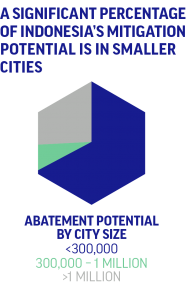 small and mid-sized cities, which often lack the financial and technical resources of larger cities and thus particularly need national government support. In Indonesia, cities with fewer than 300,000 residents hold 68% of the cumulative potential. In Brazil and India, it’s 42%. Furthermore, national governments control and drive key policy realms, typically having responsibility over financing mechanisms, and important policies and regulations such as building codes and infrastructure regulations. This research underlines how national governments that prioritise action on cities can create much needed economic security and jobs today and can enable rapid strides towards a zero-carbon, resilient, and inclusive future tomorrow.
small and mid-sized cities, which often lack the financial and technical resources of larger cities and thus particularly need national government support. In Indonesia, cities with fewer than 300,000 residents hold 68% of the cumulative potential. In Brazil and India, it’s 42%. Furthermore, national governments control and drive key policy realms, typically having responsibility over financing mechanisms, and important policies and regulations such as building codes and infrastructure regulations. This research underlines how national governments that prioritise action on cities can create much needed economic security and jobs today and can enable rapid strides towards a zero-carbon, resilient, and inclusive future tomorrow.
Inspired by the six countries in Seizing the Urban Opportunity, national governments everywhere can significantly accelerate decarbonisation and enhance resilience by investing in compact, connected, clean and resilient cities and thus reap substantial economic, social, and environmental benefits. The report contains a number of country-specific national priorities for action, as well as broader recommendations for national governments, urban leaders and the finance and development community. As national governments enhance their climate commitments on the road to COP26, we call for them to place cities at the heart of their economic development plans. The time for action is now.
The Seizing the Urban Opportunity report was funded by the UK government, The Resilience Shift, the Global Covenant of Mayors for Climate and Energy and the Children’s Investment Fund Foundation.